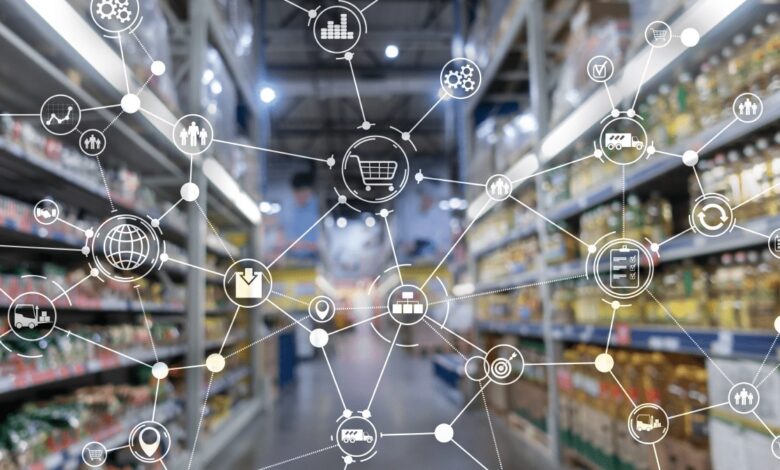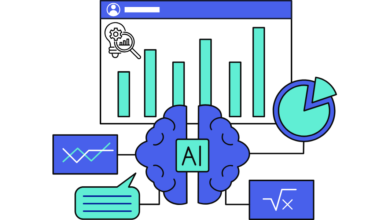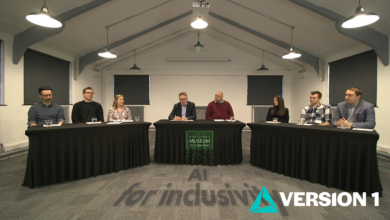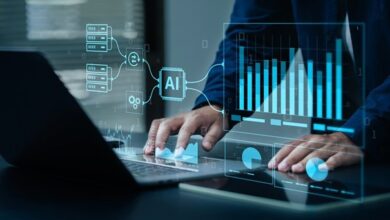
In recent years, we’ve witnessed remarkable investments surge within the supply chain industry, driven by the transformative potential of technology and specifically artificial intelligence (AI). 2022 saw a two-fold increase in venture funding for supply chain management companies, surpassing the previous all-time high by over $2 billion. AI investments are up overall, but there’s a reason this sector in particular is seeing record growth: logistics and procurement, the key functions of supply chain operations, make up the world’s most ineffective trillion-dollar marketplace. The rise of multinational corporations has made supply chain strategy critical in a way purchasing managers could have never expected.
The advent of generative artificial intelligence (GenAI) coincides with this pivotal moment for supply chains. Many have speculated how generative AI’s core functions – content creation, mimicking human speech through natural language processing (NLP), data augmentation, and simulation – can be applied to an industry defined by information silos, out-of-date processes, poor data quality, and frequent human touchpoints.
Generative AI’s usage in supply chain management isn’t immediately obvious, but it is increasingly necessary. The inefficiencies that have long plagued supply chains are only growing in complexity and frequency, and generative AI is a natural continuation of the investments in transformative technology already shifting the industry’s landscape. Understanding the potential of generative AI to enhance global supply chains requires a creative look at its fundamentals, and the multiple facets of the supply chain where its transformative potential is most promising.
The Fundamentals of Generative AI – and It’s Promise for Supply Chains

Generative AI, a subset of artificial intelligence, operates via prediction and reinforcement. Large language models (LLMs) like ChatGPT exemplify this, predicting the next words in sequences from extensive real-world data. Beyond prediction, reinforcement learning with human feedback (RLHF) enhances their responses. Human auditors review and grade AI-generated content, refining the algorithm for safety and accuracy. Leveraging real-world data, generative AI crafts diverse content across various mediums like audio, text, code, images, videos, and digital simulations.
The most widely discussed applications for the technology have centered around its ability to augment human interactions. You’ve likely seen or heard of its usage in customer service (chatbots), creation of novel products using historical data (design & discovery), autonomously generating text or code (content creation), and building digital twins of existing environments (digital simulation).
These applications have widespread implications for multiple industries. But, with its remarkable capacity to generate diverse forms of content and simulate real-world scenarios, GenAI presents a unique opportunity for transforming the vital work done by supply chain professionals.
Use Cases Within the Supply Chain
Let’s explore how generative AI can help make supply chains more efficient, resilient, and sustainable.
1. Communication:
There is a widely shared view among industry leaders that Generative AI has revolutionized the way humans communicate with machines – becoming a global bridge in supply chain communication. Until Generative AI’s emergence, human users were required to learn the language of machines (more commonly known as code), in order to glean their data or insights. Generative AI democratizes access to machine intelligence by making its language our own, easily understood by all.
In the context of supply chains, this gives it the ability to translate and summarize documents, as well as generate messages. This empowers trading partners to work seamlessly across language barriers – a necessity, considering that procurement teams manage deals with suppliers largely concentrated overseas. This functionality is further enhanced by the support of global data-sharing standards that ensure clarity and cohesion in data exchange. Simply put, generative AI can create a single source of truth for product, location, and event information, a synergy that could revolutionize cross-border collaboration, one of the greatest challenges in supply chain management.
2. Data Quality
Generative AI brings a robust solution to data quality concerns within the supply chain. By employing pattern recognition, it can flag anomalies, fill gaps, and enrich product data, ultimately leading to improved completeness and data accuracy. International data standards serve as valuable and established guardrails for data generated by generative AI and help ensure the accuracy and utility of AI-generated results.
3. Inventory Management
One of the greatest challenges for supply chains is generative AI’s biggest opportunity – an innovative approach to inventory management. Hanesbrands has harnessed generative AI to answer complex supply chain questions and make critical information accessible to all its associates. They are utilizing a generative AI-powered assistant, which integrates with popular messaging tools like Microsoft Teams, Slack, or WhatsApp. It enables users to gather information through natural language exchanges and find solutions for supply planning, purchase order prioritization, and efficient inventory utilization.
For businesses in various industries, generative AI’s capability to analyze historical data allows for the creation of predictive models. These models, in turn, offer insights into supply and demand scenarios, recommend optimal order quantities, and suggest appropriate stock levels, effectively optimizing inventory management.
4. Resilience
The ability to simulate various forms of content is one of generative AI’s most lauded capabilities – and in the case of supply chains, this can be harnessed to prevent disruption. Siemens, for instance, collaborated with Scoutbee, a Berlin-based startup, to launch a chatbot designed to swiftly respond to requests for identifying alternative suppliers or potential vulnerabilities within the supply chain. Generative AI can also create digital twins of supply chains for users to simulate and assess responses to disasters or sudden changes. Leveraging historical data and real-world insights aids in risk assessment and contingency planning that corporations can use to adapt to natural disasters, geo-political turbulence, raw material shortages, and more.
5. Social Responsibility & Sustainability
Generative AI’s role in optimizing logistics routes is invaluable for efficient fulfillment. It can dynamically adjust and adapt based on feedback, enhancing the accuracy and efficiency of logistics operations. This presents a huge opportunity for sustainability. By optimizing shipping routes based on carbon emissions, large brands could significantly diminish their Scope 3 emissions, one of the largest contributors to climate change.
Going even further, generative AI could help design products with new, eco-friendly materials and redesign packaging to reduce environmental impact. Its capacity for optimization and innovation makes it the perfect technology to implement collaborative, sustainable practices that ultimately contribute to a more eco-conscious supply chain. Industry leaders like Unilever and Maersk have demonstrated just how powerful a tool generative AI can be in this regard. These companies are harnessing the capabilities of generative AI to address critical ethical concerns, such as identifying and eliminating supply chain links known for environmental issues or human rights abuses.
In the pursuit of these transformations, it’s imperative to understand the limitations and risks associated with generative AI. Hallucinations, performance drift, and data privacy concerns all warrant careful consideration. While the potential risks are real, they can be mitigated with the right approaches, such as private data sets and human validation.
The Game-Changer Supply Lines Have Waited For
As global markets become increasingly interconnected and consumer expectations soar, businesses are recognizing the vital role of a well-optimized supply chain. Generative AI’s capacity for fostering innovation, improving communication, and elevating data standardization makes it a formidable catalyst for the out-of-date industry landscape that is supply chain management.



